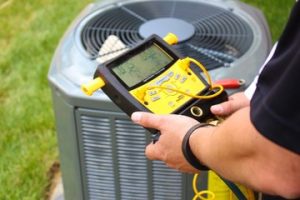Whether it’s your air conditioning unit or ductless mini-splits, HVAC Round Rock is an important part of your home comfort. Evaluate your home’s needs to choose the right system.

In hot climates, you may require a high-efficiency cooling system. In colder regions, a heat pump with strong heating capability might be ideal. Consider energy efficiency ratings, smart features, and zoning systems for personalized temperatures.
The compressor is the heart of your air conditioning system. It pumps and circulates refrigerant, regulating pressure to create an ideal flow that absorbs heat in summer and expels it in winter. Without a functioning compressor, your AC won’t be able to operate. Having a strong grasp of the function, types and maintenance needs of this equipment can help homeowners, technicians, and facility managers optimize HVAC performance and potentially lower operational costs.
The axial compressor uses an array of rotating and stationary vanes to compress air. Each rotor is lined with airfoils, known as blades or rotors, that accelerate the fluid to a high velocity and then decelerate it as it passes through each successive set of rotors. The rotation of the rotors causes the air volume to compress, and the changing momentum of the airflow is converted into mechanical energy that drives the system’s electrical motor.
There are many different types of HVAC compressors, each designed with its own unique technology. Two popular options include the reciprocating and scroll compressors. Reciprocating compressors use pistons to compress refrigerant, and they are well-known for their reliability and affordability. Scroll compressors, on the other hand, use two spiral-shaped scrolls to compress refrigerant and are renowned for their quiet operation and energy efficiency.
Both types of compressors are available in a variety of sizes and capacities to meet your specific requirements. In addition to size and capacity, you also have the option of selecting an air conditioner compressor with a higher SEER rating, which can result in significant energy savings.
Inverter-driven rotary compressors are another option that can increase your energy efficiency and reduce your home’s carbon footprint. These systems feature a roller that rotates off-center, enabling the compression to take place at a slower rate than with conventional compressors. This can reduce the amount of power needed to compress refrigerant and thus lower energy consumption, which in turn reduces your utility bills.
Condenser
The condenser is the outdoor unit of your AC system, and it is one of the most crucial components in a home cooling system. This box-shaped unit is typically mounted on the side or rear of your home, with tubing running between it and your indoor air conditioning system. The condenser takes the heat from your indoor air and transfers it to cooler outside air. The process is enabled by the transformation of refrigerant from a liquid to a gas. This gas then travels to the condenser where it absorbs heat. Then the refrigerant returns to a liquid state and flows back to the compressor, where the cycle begins again.
The heat that the condenser removes from your house is transferred to cool outside air, and this cooled air is then blown through vents in your home. Keeping the condenser clean is important for your HVAC system to function properly, because if it doesn’t remove enough heat from outside, then your cooling system will not be able to provide the proper level of cooling.
This is why it’s important to keep the outside of your home free of debris and plants that could obstruct the condenser. It’s also a good idea to regularly run a garden hose over the top of the unit, and this will help ensure that it receives an adequate amount of cooling air.
Inside the condenser, you will find a large metal heat exchanger that looks somewhat like an engine radiator. This heat exchanger has copper tubes and aluminum fins, and there is a fan that blows cool air over the coils to quickly reduce the temperature of the heated refrigerant. This cooled refrigerant then moves to the expansion device in your home, where it becomes a low-pressure liquid once again.
The entire process relies on the thermodynamic principle that heat always moves from a warmer to a cooler environment. The lengths of pipework between the compressor and your home are relatively short, so any pressure drops caused by the resistance of the pipes are negligible. Similarly, the pressure on the HP gauge is identical at every point along the circuit between the compressor outlet and the entry to the expansion device.
Thermostat
A thermostat is like the conductor of your HVAC orchestra – it brings all the different parts together to create an ideal level of comfort. In order for the system to operate properly, it needs to be able to communicate with all the components through a complex network of wires. Understanding the purpose of these wires is critical to installing or upgrading your thermostat.
Thermostats work by detecting the ambient temperature and making adjustments to keep it at your desired “set point.” This can be accomplished through a number of methods, including electronic sensors that monitor and analyze data from your home’s environment.
These sensors measure various factors, such as air humidity and temperature, and send these data to a central control unit. The processing unit then determines whether the system should be turned on or off to maintain your desired set point. Once the system decides to turn on, it begins cycling to maintain your preferred temperatures.
There are a variety of types of thermostats available, from standard mechanical models to smart devices that can control your entire system. Modern digital thermostats are highly accurate, typically maintaining your desired settings within a single degree. They also feature programmable schedules, WiFi connectivity, and energy usage tracking.
Traditional, mechanical thermostats rely on a bimetallic strip that expands or contracts as the temperature changes, physically triggering the system to respond. This type of thermostat is less expensive and simple to use, and many homeowners prefer it for its straightforward operation and reliability.
Most systems have a low-voltage 24 VAC transformer that powers the thermostat and other heating or cooling systems in your home. This is usually located on the air handler in your HVAC system or near the condensing unit. Locating the transformer and identifying its C (common) and R (resistance) terminals is the first step in wiring your new thermostat.
A thermostat base typically has 4 to 16 terminals. Each one has a specific function that can be attributed to its color or letter designation. If you’re replacing a manual model with a smart thermostat, you’ll also need a brown or light blue, X/AUX or W2 wire. This provides a second stage of heating and connects to the AUX or E terminal on your new thermostat.
Filters
A filter is an essential component of an HVAC system. It removes harmful airborne particles from conditioned air and helps improve indoor air quality (IAQ). There are several types of filters, each with different MERV ratings and filtration capabilities. Choosing the right one for your home or business will help reduce pollutants and protect your equipment.
Fiberglass filters are the most common and least expensive type of filter. They are made from layered fiberglass designed to trap larger particles like dust and dirt. These filters are typically disposable and should be replaced every 30 days, although replacement frequency may vary depending on the level of contaminants in your area.
Pleated filters are a step up from fiberglass filters. They have a larger surface area than their fiberglass counterparts, allowing them to capture more particles. They are also available with MERV ratings of up to 16. Filters with higher MERV ratings are more efficient at capturing smaller particles, including some bacteria and viruses. These filters are often recommended for environments that need high levels of contaminant removal, such as hospitals or surgical centers.
Electrostatic filters are another option for residential HVAC systems. They use a series of flat metal plates that are charged with static electricity. As air passes over the filters, the particles are attracted to them and trapped inside the screen. These filters are also reusable and are usually cleaned about once a month. They can cost more upfront than other types of filters, but they save money and energy in the long run.
Carbon filters are also an option for some home HVAC systems. These filters absorb odors and VOCs, which are chemical compounds that are emitted by many household appliances. They are also reusable and are sometimes washable.
Potassium permanganate filters are another type of filter that is effective against odours and VOCs. These filters use a special media that oxidizes and traps impurities, which is then captured in the filter. These filters are usually washable, but they can be costly.
Choosing the right filter for your HVAC system is important to prevent airborne contaminants from damaging your equipment and causing health issues for you and your family or employees. Make sure to follow the filter maintenance instructions listed in your owner’s manual, and have your system professionally maintained on a regular basis.
